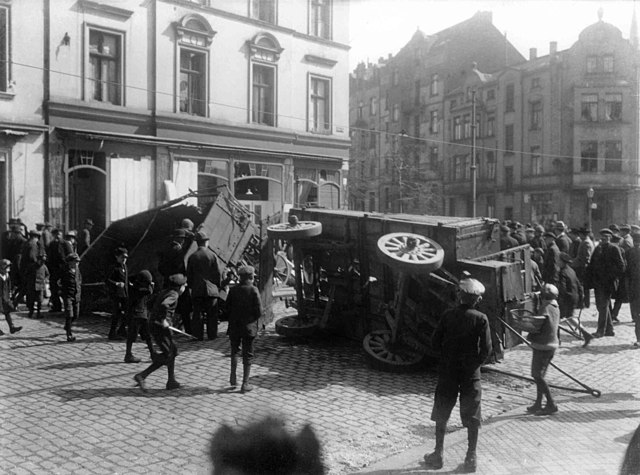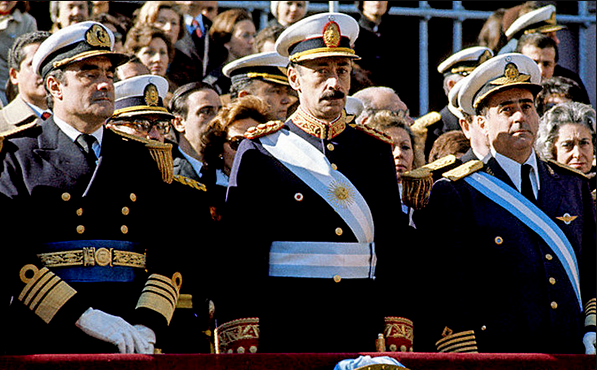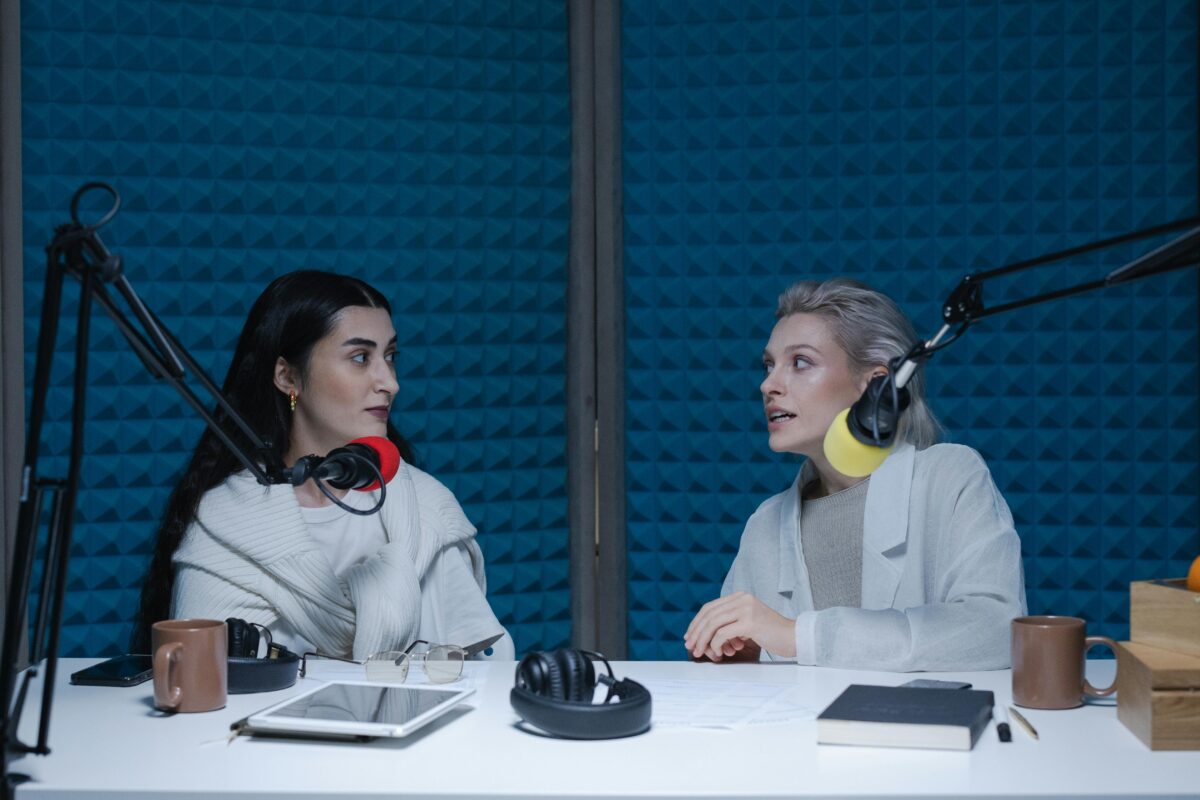Hello Izzy. Can we start with you introducing yourself? What are you currently doing in Berlin, and what have you done?
So, my name’s Izzy. I’ve been in Berlin for about nine years now. I come originally from the UK, and I moved here when I was 24 to take up an internship. The internship was a pretty shitty one – I quit it within a couple of weeks. Later, I decided to kind of take a complete career shift.
I was an English speaking person living in the centre of the historical memory of Europe during the 20th century. I previously studied history, and I’ve always considered myself first and foremost a historian. So I decided to become a tour guide.
I started back in early 2015, and I did it all the way up until the pandemic. I worked as a tour guide for five and a half years. I loved it, and I miss it very much. I’m looking forward to the opportunity to do the occasional tour.
Let’s talk about tour guiding as a job. Tour guides are sometimes taken a bit for granted, both by their employers and the people on the tours. What are the working conditions like?
When I was doing it, Berlin was going through a steady sustained increase in tourists every year. You had millions of people coming to the city throughout the year. There was definitely more work in the summer than in the winter time, but there was always work. We made plenty of money and there wasn’t a huge amount of competition between us all.
About the working conditions, I can only really speak for myself. A lot of people I know did it for a long time, half a decade, just like me. You don’t do a job like that for that long If it’s rubbish. It was outside, you are talking to new people every single day. The money was pretty great.
Until the pandemic this was a fantastic job. However, you don’t have any rights. You don’t have any contracts. You’re just a freelancer. And that means that you can be picked up and dropped as is.
How has Covid affected tour guides? It’s a precarious procession. What sort of support was made available?
We got the freelancer grants at the beginning of the pandemic. It was about five grand in a one-time payment. I think you could reapply for that in October 2020. Then a lot of people went on unemployment benefit. I got a job by November 2020, so I was out of the woods.
I don’t think many people foresaw how precarious it became. Tourism just felt like the gift that kept on giving, It didn’t feel like something that would be eradicated overnight. This was a shock that the industry wasn’t prepared for.
We had talked about unionizing for a few years before that, but nothing had ever come of it because it was such a seasonal job. We could work for multiple companies and weren’t locked into contracts. Without this, most likely the pay would be lower. Things like tips come into question as well. I made about half my money from tips.
Many of us were not able to access statutory health insurance. I became a student in 2017, partly because I wanted to learn some more stuff, but also so I could get onto statutory insurance. Before that I was on private insurance which was not good.
I put nothing towards my pension for five and a half years. I wasn’t paying into social security because of the freelancer lifestyle. Much of my money was essentially Schwarzgeld [untaxed semi-legal income].
[Editor’s note: Not only do some plans not cover basic medical requirements, if you get your insurance last minute or after 15 days have passed from the day you booked the trip, you may not be able to get full coverage. You can find more information about obtaining insurance for international travelers, students, workers and immigrants at the VisaGuide world, or the Germany Visa websites].
In “Homage to Catalonia”, George Orwell talks about the liberation of Catalonia in 1937 when people stopped tipping because of the power relationship involved. Did you have a problem working for tips?
In my job, some people tipped and some people didn’t. Sometimes you’d walk away with a very large amount of money, sometimes with slightly less. But it was fairly consistent and I never felt in any way that I needed to change my behaviour.
Other companies were based on a model of free tours, which meant that you pay what you want at the end of the tour, based on your experience. A tour guide would have to pay the company a certain amount of money per tourist, and hope that you get, say, more than four Euros per tourist. Otherwise you’ve lost money.
I never did those tours because I didn’t want to have that power relationship between me and the tourists. For me, getting tips was just a massive bonus. It was something that I really appreciated and made up around half of my income. A bad tour meant that I was potentially losing a nice bonus at the end of the day, but it was not a tragedy because I knew I was getting paid for that tour.
It’s a very complicated relationship overall, and I haven’t really thought about it before. We did base a lot of our income on tips. And that obviously creates a certain dynamic between a tourist and what I was, which was essentially a service sector worker.
You’re trying to explain stuff in the simplest kernels of truth and maybe you’ll inspire someone to go and learn more.
On Saturday you are coming out of retirement to do a new tour. Is there any particular motivation that you had for doing this one?
This tour is going to be about the history of the Left in Berlin. I am fascinated by the subject and wanted to learn more, which is often where the best ideas for tours come from. Berlin is a canvas on which you can paint many beautiful tours.
What’s so interesting about this particular subject matter is that Berlin is a city of change. It’s a city of constant rebirth, of chaos and destruction, which is then reborn as something different. The only thing that you can ever really depend on in Berlin is that it will change. I wanted to see what the Left has changed and how it has changed itself as a result of interacting with Berlin.
Anyone who has a basic understanding of history, especially over the 20th century, can imagine what might come out of that tour.
Just thinking of the last century, we have the First World War, the German Revolution, the rise of Fascism, the DDR, the squatters’ movement and the rebirth of United Germany as an imperial power. How can you structure a tour to fit in all of this?
Firstly, you have to put together all your facts and figure out what the major themes are. At the same time, it’s not an undergraduate degree programme in Berlin history, you’re conducting a four hour tour. You’re trying to explain stuff in the simplest kernels of truth and maybe you’ll inspire someone to go and learn more.
You don’t just look for historical fact, you also look for locations. In this tour, we’re going to go through some of the most historic parts of the city and talk only how the Left was affected by those places. I hope to show places that have influenced and have energized and have changed as a result of leftist politics.
This tour is going to be going from Alexanderplatz to Oranienplatz – basically Alt-Mitte and Kreuzberg. Which are some of the most important locations in this area?
For the first part of the tour, we’re going to do 1848 to 1919. It will go from Marx and Engels Platz to Rosa Luxemburg Platz, where I’ll talk about the German Revolution and the death of Rosa Luxemburg, and how this affected the movement.
I want to show the creation of the schism between the two parts of the left – the SPD and KPD in party political terms, liberals and the far left in more philosophical terms. After talking about Karl Marx’s role in the 1848 revolutions, I’ll address the death of Rosa Luxemburg. What did she stand for and how she was in a schism when a new nation was born during the German revolution?
These are aspects of world history that happened here in a turbocharged way and gave rise to the turbocharged politics of the 20th century.
Another really exciting location that we’re going to go to is the Sophiensäle which has a fantastic history for leftist movements. It’s also a place that is genuinely beautiful to visit and often hidden from the naked eye. It’s not somewhere that most people have on their lists.
Then we’re going to Kreuzberg to talk about gentrification, the squatters’ movement, and more recent struggles. We’ll look at how Berlin has been shaped by the fall of the Berlin wall in 1989, and what reunification meant for this part of the city that was right up against the wall for 28 years, surrounded on three sides, squeezed in with a mostly working class population which came from lots of different places in the world, most prominently Turkey.
We’ll be looking at the workers’ history of Kreuzberg and how it was shaped by the massive changes that occurred on a higher political level.
How much do you think you can use Berlin to talk about more general international politics? Is Berlin just different?
When you’re talking about the history of Europe and North America in the 20th Century, Berlin feels like an obvious place to start, because it saw it all. It was the powerhouse of National Socialism during the 1930s and 1940s. The most murderous political force in human history was harboured here in this city.
That destruction then gave rise to a period of detente and both ideological and physical divide. We see this physical divide in the Berlin wall. The divide was felt internationally, but here there were physical barriers between communism and democratic capitalism.
If you go back further, 19th century Berlin was one of the major places of disruption and excitement, change and reverberating ideas, partly because it went through such fast, rapid urbanization and industrialization.
Prussia was one of the fastest states in Europe to industrialize. Within a generation there was mass displacement on a level that we haven’t seen since. Berlin quadrupled in size within 40 years from 1871 until 1920. These are aspects of world history that happened here in a turbocharged way and gave rise to the turbocharged politics of the 20th century.
You also have the international figures that found refuge here, studied here, learned stuff here, and then went off and did rather radical things elsewhere. Lenin is the prime example of this. Berlin is not just somewhere that teaches us about German history or Berlin history, but also how ideas and political movements are shaped by massive structural changes.
Is this just going to be a history lesson or are their lessons that people today could learn from both the good parts and the bad parts of Berlin’s history?
It’s going to be primarily a history lesson, but I tend to be a quite didactic tour guide, especially when I talk about Fascism. T
The capabilities to fall into Fascist totalitarian dictatorships are present everywhere. You just need that kernel of hate to grow into a political movement and create the basis for taking away people’s liberties then their lives.
Equally, some really exciting movements have happened in Berlin, especially in West Berlin during the 1970s, like the squatters’ movement which said that housing should be for people and not for profit.
These kinds of movements come out of the city. They would never have happened without the specific history that Berlin went through during the 20th century, but they give us an opportunity to see how such movements could be recreated and extended elsewhere.
If Saturday goes well, there are thoughts of doing further tours in Berlin. Where else in Berlin do you think people should know about?
I would like people to know more about the last 30 years, to really offer context about the current situation. One of the places that has seen the most change is Neukölln, where I live. It is a great example of where public policy can go wrong and where public policy can go right.
The history of Neukölln since 1990 is educational. It would be amazing for people to really understand more about the rent crisis that we’re living through, more about gentrification, precarious working situations and the school system, why there are such massive disparities between different parts of the city.
To understand more means you can then create policies that help. Tour guiding is a fantastic opportunity to really get people engaged with the city that they live in, and for them to feel empowered, to give them knowledge to go forth and create change within their districts and within their city.
The political walking tour with Izzy starts on Saturday, 19th March at 2pm at the Martin Luther Statue next to Alexanderplatz (Karl-Liebknecht Straße 8, near the Fernsehturm). Everybody is welcome.




